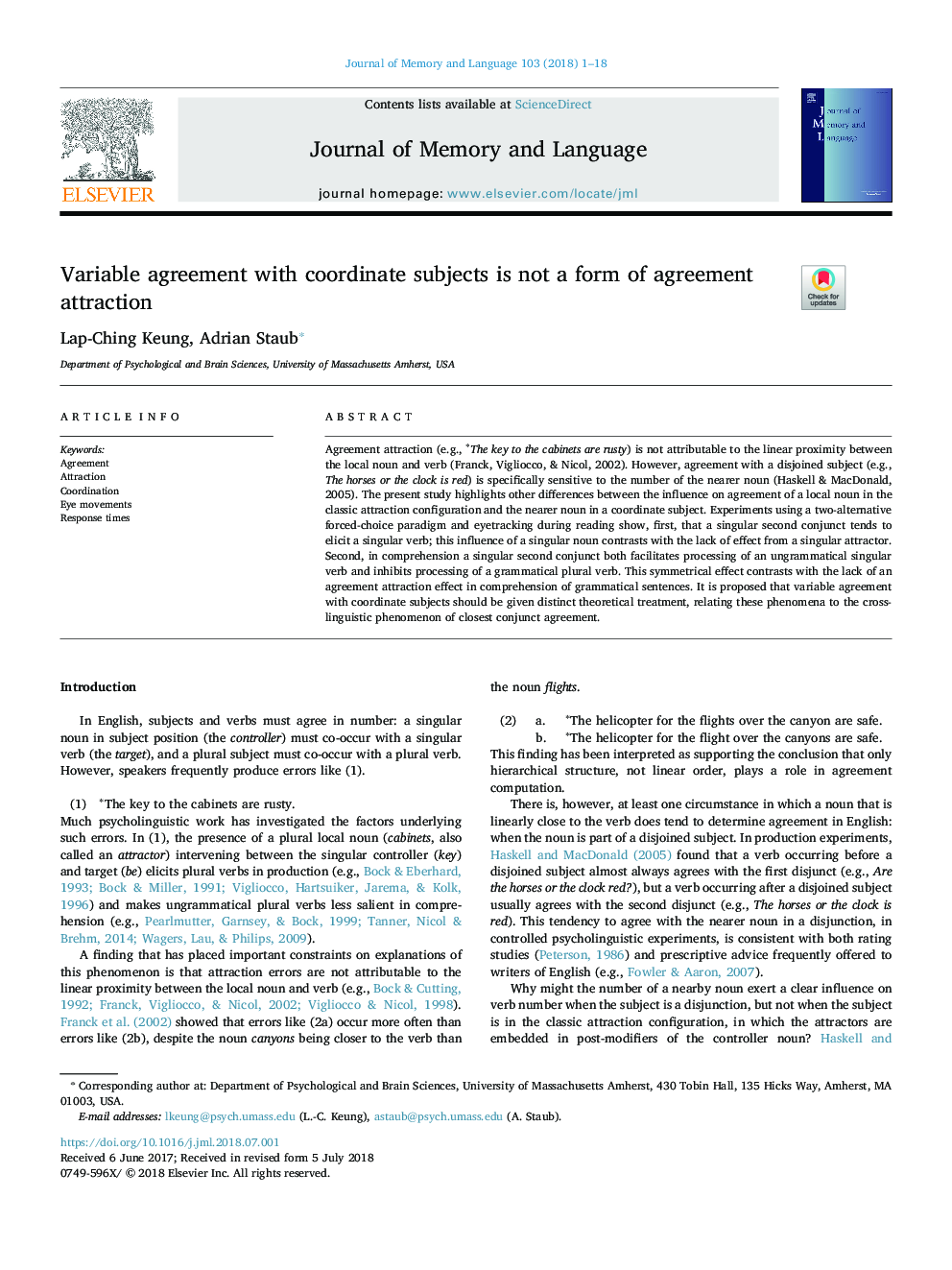| Article ID | Journal | Published Year | Pages | File Type |
|---|---|---|---|---|
| 7296740 | Journal of Memory and Language | 2018 | 18 Pages |
Abstract
Agreement attraction (e.g., âThe key to the cabinets are rusty) is not attributable to the linear proximity between the local noun and verb (Franck, Vigliocco, & Nicol, 2002). However, agreement with a disjoined subject (e.g., The horses or the clock is red) is specifically sensitive to the number of the nearer noun (Haskell & MacDonald, 2005). The present study highlights other differences between the influence on agreement of a local noun in the classic attraction configuration and the nearer noun in a coordinate subject. Experiments using a two-alternative forced-choice paradigm and eyetracking during reading show, first, that a singular second conjunct tends to elicit a singular verb; this influence of a singular noun contrasts with the lack of effect from a singular attractor. Second, in comprehension a singular second conjunct both facilitates processing of an ungrammatical singular verb and inhibits processing of a grammatical plural verb. This symmetrical effect contrasts with the lack of an agreement attraction effect in comprehension of grammatical sentences. It is proposed that variable agreement with coordinate subjects should be given distinct theoretical treatment, relating these phenomena to the cross-linguistic phenomenon of closest conjunct agreement.
Related Topics
Life Sciences
Neuroscience
Cognitive Neuroscience
Authors
Lap-Ching Keung, Adrian Staub,
